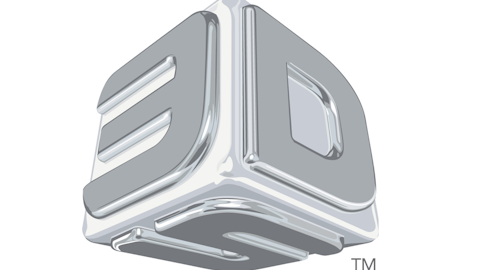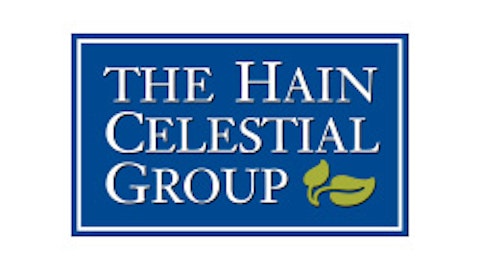
Maybe the conspiracy theorists would call it a cabal; NY Times reporter Michael Moss just called it a secret meeting, when some of our largest food manufacturers got together in 1999 to discuss the obesity epidemic in the US. According to Moss’ book, “Salt Sugar Fat: How the Food Giants Hooked Us” a Kraft Foods Group Inc (NASDAQ:KRFT) vice president, Michael Mudd, implored the assemblage for solutions to the burgeoning problem of obesity warning of class action lawsuits among other dire forecasts in a lengthy Power Point show. The CEO of General Mills, Inc. (NYSE:GIS) spoke his piece, clearly peeved; and game, set, match the food industry continued on its merry way unconcerned with the consequences of sugar, fat, and salt to its consumers.
At that time Kraft Foods Group Inc (NASDAQ:KRFT) was still under the Philip Morris umbrella. Philip Morris, no stranger to litigation, was telling its Kraft people they had to do something about these food additives. A former CEO of Philip Morris, now Altria Group Inc (NYSE:MO), told Moss government regulation was probably needed to make the food processors do the right thing if only so their shareholders and the Street would back off.
Big government vs big food
In NYC the fight rages on, even as a judge overturned the controversial ban on “supersize” beverages championed by Mayor Michael Bloomberg. His Honor vows to fight on to pass it in some form. The soda companies, PepsiCo, Inc. (NYSE:PEP) and The Coca-Cola Company (NYSE:KO) breathe a temporary sigh of relief and are cheered on by Mississippians who want to pass an anti-Bloomberg bill outlawing bans on supersized beverages.
Still, NYC isn’t the only municipality seeking a governmental solution to obesity. The city of Richmond, CA had a beverage tax referendum last fall. As an easy way to gain revenue these referendums are tempting to cash-strapped communities. And in early December two food policy experts faced off on a debate whether these corporate food giants should have a say on governmental policy. Categorically no was the position of Kelly Brownell of the Yale Rudd Center for Food Policy and Obesity. Absolutely yes was the opinion of Derek Yach, formerly a senior exec at PepsiCo, Inc. (NYSE:PEP). Predictable but interesting nonetheless.
Most interesting to investors was what Brownell had to say about the argument that these food companies are making healthier alternatives available. He said these would only ever be niche markets and basically were just “baby steps.”
Are any of these healthy for the portfolio?
Even taking Brownell’s argument with a grain of salt (pun intended) it makes companies like Coca-Cola and PepsiCo, Inc. (NYSE:PEP) look like buys if you’re willing to admit they could now be considered “sin stocks.” Brownell’s argument also discounts the growth that a company like natural and organic foods manufacturer The Hain Celestial Group, Inc. (NASDAQ:HAIN) could have in the future.
While I admire the gumption that Kraft Foods Group Inc (NASDAQ:KRFT)’s Mudd showed as well as the progress it’s made on improving its nutritional profile with little support from the rest of the food industry, thank you very much, it still has products that aren’t “healthful.” It is almost as much a culprit as General Mills is a cereal offender (although it is making some progress on healthier cereals and yes, pun intended). Of course, the worst offenders are the soda stocks which make people more obese because the human body recognizes less satiety with sugar laden beverages than with sugar laden snacks and so people drink much more than they should.
As for Pepsico, at 52 week highs and with a smaller yield at 2.80% and a 19.58 P/E it’s not that compelling a story here. Likewise Coca-Cola is not far from 52 week highs and has a 2.90% yield with a 19.77 P/E.
At these stretched valuations and with public opinion so polarized I’d rather have the 4.00% yield from Kraft with a lower P/E at 18.31. (Note: I am in no way related to anyone at Kraft Foods. I wish.) Here too, Kraft closed at a 52 week high of $50.55 on March 12. (FYI that $0.50 per share quarterly dividend goes ex-dividend on March 29.)
Sin vs Celestial
What about The Hain Celestial Group, Inc. (NASDAQ:HAIN), beneficiary of the trend to healthier eating? It’s off close to 20% from its 52 week high but it has the highest P/E of all of these at 27.83 and with a PEG of 1.38 may still be overvalued at this level of $57.12.
Since it doesn’t have a yield like these other value and sin stocks its growth better be …well, better. Analysts expect 16.67% EPS growth for Hain over five years (yoy). Kraft’s EPS growth rate is 3.35% over the next five years. PepsiCo, Inc. (NYSE:PEP)’s 5 year EPS growth rate is 7.27% and Coca-Cola’s is 8.95%.
The Hain Celestial Group, Inc. (NASDAQ:HAIN) comes with caveats. It’s already up 31% over the last year, it has a high short interest of 17.70%, and its total debt of $645.66 million to total cash of $42.57 million is high despite the fact it has bought some accretive companies lately. These acquisitions included Blueprint, their foray into raw juices and two British brands, a nut butter and a jam brand.
The 20% decline in Hain’s share price has less to do with Hain than one of its main retail outlets, Whole Foods Market, Inc. (NASDAQ:WFM), which recently announced plans to cut prices to bring in traffic to its new smaller stores. Hain is also available on mainstream grocery shelves with a portfolio of over 45 products including well known brands like Celestial Seasonings, Earth’s Best, and Terra Chips, available in 50 countries.
As Hain guided considerably higher at its last earnings release on February 5 and reported record net global sales of $455.3 million for 2012, a 24% increase over 2011, any further pullbacks are like their yogurt brand, a gift from The Greek Gods and should be considered buying opportunities.
Are you hooked yet?
If you’re looking for value then Kraft Foods Group Inc (NASDAQ:KRFT) has it and is the best name among these big cap food processors in terms of yield, valuation and social responsibility. However, if you want growth at a 20% discount look for pullbacks in The Hain Celestial Group, Inc. (NASDAQ:HAIN). It is growing brands and adherents to its healthy eating that tastes good mission.
The article Why One Food Manufacturer Stands Tall originally appeared on Fool.com.
Copyright © 1995 – 2013 The Motley Fool, LLC. All rights reserved. The Motley Fool has a disclosure policy.

